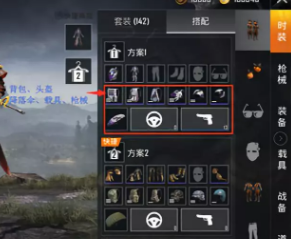digital currency group stock Block
In short, it is the products released for the first time, the new formats, new models, new services and new technologies introduced for the first time, including the first store economy that has attracted much attention in the market in recent years.Enhance brand image: enterprises can quickly establish and enhance brand image and enhance market competitiveness through initial activities.The Central Committee of the Communist Party of China's Decision on Further Comprehensively Deepening Reform and Promoting Chinese Modernization, which was deliberated and adopted by the Third Plenary Session of the 20th CPC Central Committee, emphasized that the long-term mechanism for expanding consumption should be improved, restrictive measures should be reduced, public consumption should be reasonably increased, and the initial economy should be actively promoted.
Compared with the first store economy, the connotation of the first-time economy is richer. Study times said that there is a big difference between the first-time economy and the first-store economy. The first-store economy refers to an economic form that uses the advantages of resources to attract domestic and foreign brands to open stores in the region for the first time, so as to achieve the optimal coupling between brand value and regional resources, thus having a positive impact on the regional economic development. The first store can be the first store in the world, the first store in China, the first store in the region, etc. Through the opening of these first stores, consumers can be provided with more diversified and personalized choices, and at the same time, business innovation and upgrading can be promoted.Promote industrial upgrading: the first economy promotes enterprises to introduce new technologies, new services and new formats, and promotes industrial innovation and transformation and upgrading.Compared with the first store economy, the connotation of the first-time economy is richer. Study times said that there is a big difference between the first-time economy and the first-store economy. The first-store economy refers to an economic form that uses the advantages of resources to attract domestic and foreign brands to open stores in the region for the first time, so as to achieve the optimal coupling between brand value and regional resources, thus having a positive impact on the regional economic development. The first store can be the first store in the world, the first store in China, the first store in the region, etc. Through the opening of these first stores, consumers can be provided with more diversified and personalized choices, and at the same time, business innovation and upgrading can be promoted.
The first-time economy began with the "first store economy": in 2015, Shanghai took the lead in proposing to seize the first store economy. In July, 2024, the Decision of the Third Plenary Session of the Twentieth Central Committee made a systematic arrangement for "building a unified national market", which specifically mentioned "actively promoting the initial economy".Chain development: The starting economy not only pays attention to the first activity, but also emphasizes the whole chain development process, including the complete system of research and development, release, display, promotion and sales of new products.The first-time economy began with the "first store economy": in 2015, Shanghai took the lead in proposing to seize the first store economy. In July, 2024, the Decision of the Third Plenary Session of the Twentieth Central Committee made a systematic arrangement for "building a unified national market", which specifically mentioned "actively promoting the initial economy".
Strategy guide 12-14
Strategy guide 12-14
































